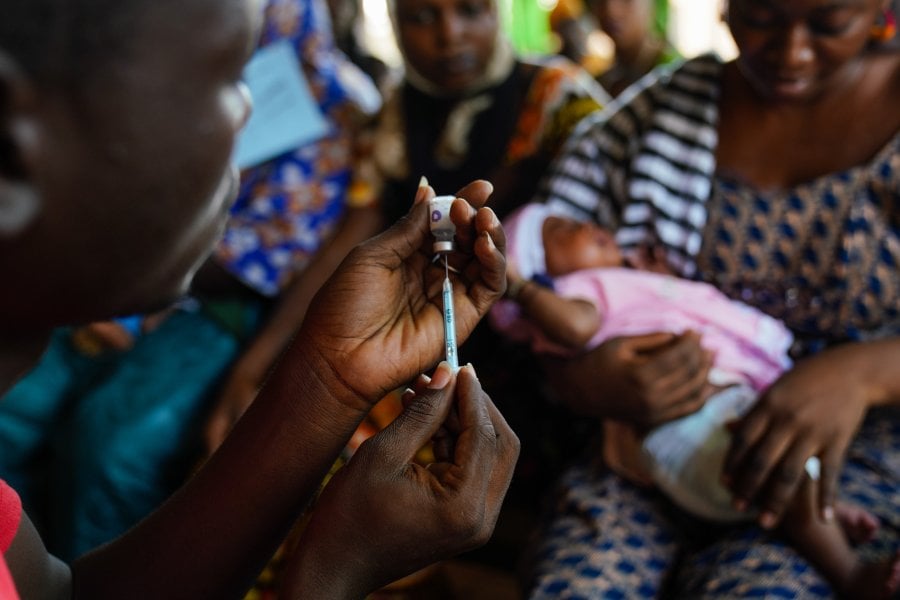A blog post by Dr Megan Carey, Management Committee member of the AMR Centre
25 July 2024 London School of Hygiene & Tropical Medicine London School of Hygiene & Tropical Medicine https://lshtm.ac.uk/themes/custom/lshtm/images/lshtm-logo-black.png
Antimicrobial resistance (AMR) poses a substantial and increasing threat to human health, and is estimated to have caused over one million deaths in 2019. The antimicrobial development pipeline is struggling to keep pace with the emergence of AMR. While alternative therapeutic modalities should be prioritized, vaccines play a critical role in combating AMR, through both direct and indirect effects.
Vaccines can limit the emergence and spread of AMR in two primary ways. Firstly, vaccines prevent infections caused by drug-resistant pathogens. Secondly, by decreasing the overall incidence of infections, vaccines limit the misuse and overuse of antibiotics, which are key drivers of resistance.
The impact of several vaccines on AMR has been demonstrated in various settings. The introduction of the pneumococcal conjugate vaccine (PCV) has led to a reduction in AMR through the prevention of infections caused by resistant serotypes and a decrease in antimicrobial use (AMU) due to a lower incidence of invasive pneumococcal disease and severe otitis media. Vaccines against Respiratory syncytial virus (RSV) and influenza have also been shown to lead to a reduction in AMU. By preventing these common infections, these vaccines also reduce the likelihood of secondary bacterial infections, which often require antibiotic treatment.
Recent modelling analysis suggests that over 500,000 AMR-associated deaths could be averted annually through the deployment of existing vaccines and the development of new vaccines targeting priority pathogens. This highlights the substantial potential of vaccines in reducing the global burden of AMR. A recent review estimates the effects of 16 pathogens covered by Vaccine Value Profiles and examines how vaccines can reduce AMR. It highlights the need for continued investment in vaccine research and development. The World Health Organization (WHO) has published an Action Framework to leverage vaccines to reduce AMR and antibiotic use. The framework includes expanding the use of licensed vaccines, developing new vaccines that prevent AMR, and conducting additional research on the impact of vaccines on AMR.
The development and deployment of vaccines against AMR pathogens should be a global priority. This includes not only expanding the use of existing vaccines but also investing in the research and development of new vaccines. Ensuring broad accessibility to these vaccines, particularly in regions with high AMR burdens, will require innovative funding models and international cooperation. As the global health community continues to grapple with the challenges of AMR, the role of vaccines should be recognized and prioritized within national AMR action plans.
The upcoming United Nations High Level meeting provides an important opportunity to recognise the importance of vaccines in the fight against AMR.
References
1. Murray CJL, Ikuta KS, Sharara F, Swetschinski L, Robles Aguilar G, Gray A, et al. Global burden of bacterial antimicrobial resistance in 2019: a systematic analysis. The Lancet. 2022;399(10325):629-55.
2. Buckley BS, Henschke N, Bergman H, Skidmore B, Klemm EJ, Villanueva G, et al. Impact of vaccination on antibiotic usage: a systematic review and meta-analysis. Clinical Microbiology and Infection. 2019;25(10):1213-25.
3. Lewnard JA, Fries LF, Cho I, Chen J, Laxminarayan R. Prevention of antimicrobial prescribing among infants following maternal vaccination against respiratory syncytial virus. Proceedings of the National Academy of Sciences. 2022;119(12):e2112410119.
4. Kim C, Holm M, Frost I, Hasso-Agopsowicz M, Abbas K. Global and regional burden of attributable and associated bacterial antimicrobial resistance avertable by vaccination: modelling study. BMJ Global Health. 2023;8(7):e011341.
5. Hasso-Agopsowicz M, Sparrow E, Cameron AM, Sati H, Srikantiah P, Gottlieb S, et al. The role of vaccines in reducing antimicrobial resistance: A review of potential impact of vaccines on AMR and insights across 16 vaccines and pathogens. Vaccine. 2024;42(19, Supplement 1):S1-S8.
6. World Health Organization. Leveraging Vaccines to Reduce Antibiotic Use and Prevent Antimicrobial Resistance:
An Action Framework. 2020.
7. Laxminarayan R, Impalli I, Rangarajan R, Cohn J, Ramjeet K, Trainor BW, et al. Expanding antibiotic, vaccine, and diagnostics development and access to tackle antimicrobial resistance. The Lancet. 2024;403(10443):2534-50.
LSHTM's short courses provide opportunities to study specialised topics across a broad range of public and global health fields. From AMR to vaccines, travel medicine to clinical trials, and modelling to malaria, refresh your skills and join one of our short courses today.